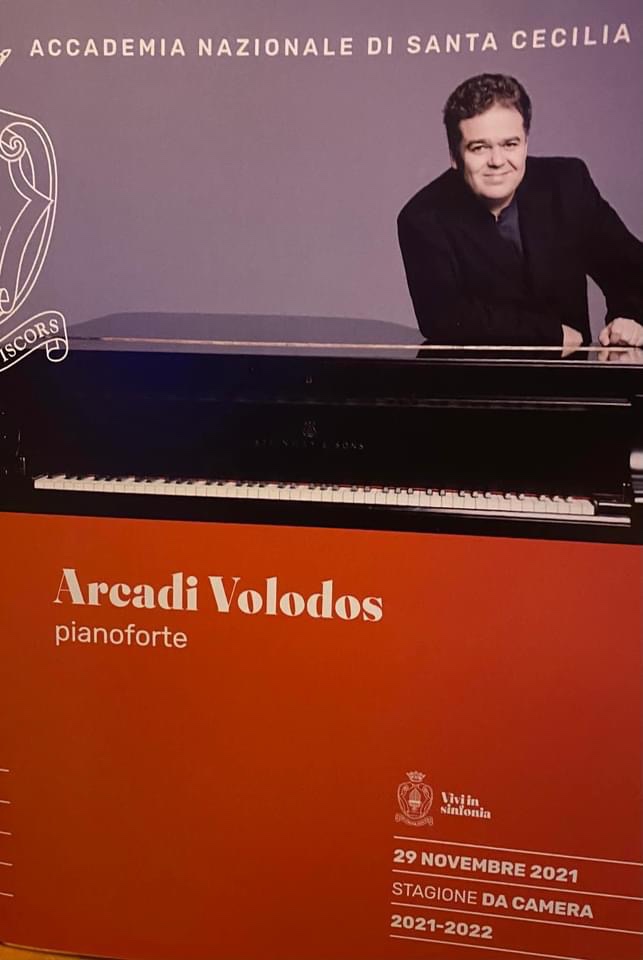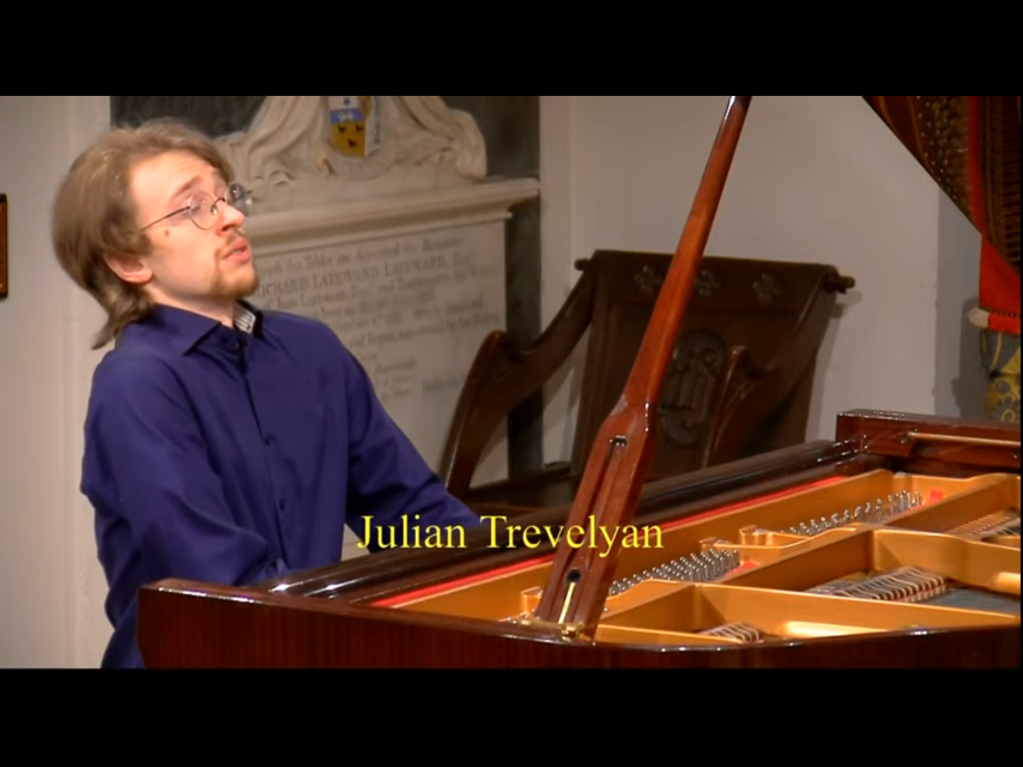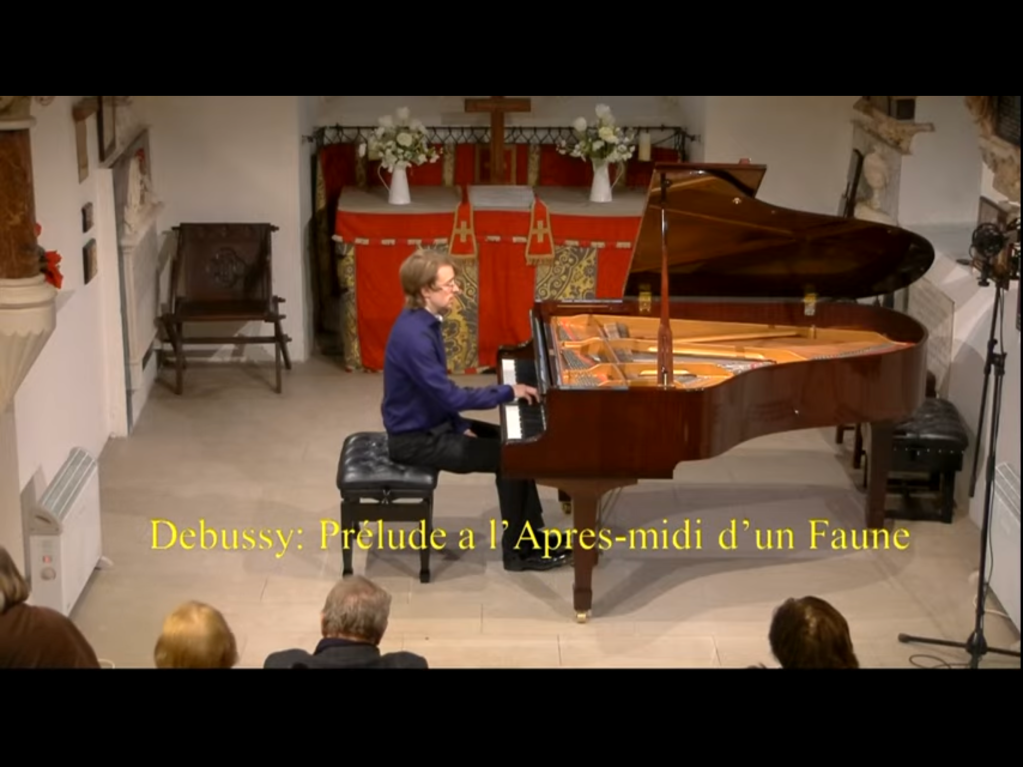
Arcadi Volodos at S.Cecilia that like Richter chose to play in penombre as he comuned with the very soul of Schubert’s D major Sonata. Sounds of sublime beauty contrasting with driving rhythmic urgency.Moments of such ravishing beauty that time seemed to stand still as he relished the perfumed sounds of such subtle fragrance.Sounds that I have only ever heard from Gilels where his fingers were like limpets driving deep into each key to produce velvet sounds of glowing richness.
But Gilels never forgot that even in Schuberts most mellifluous continuous outpouring of melodic invention there must always be that underlying rhythmic current that holds the whole architectural structure together.

Curzon was a master of this as demonstrated by his famous recording of this sonata.I remember a youthful Murray Perahia holding our rapt attention with it in Rovigo.A recital that included Mozart D minor Fantasy and Chopin four ballades – a truly unforgettable experience.
Forty minutes of sublime sounds and transcendental control but with Volodos tonight it did not hold us on the edge of our seats as Curzon,Gilels,Brendel or Perahia could do.
Could it be that such pianistic perfection should also contain some imperfection too?
A performance to marvel at but not to be devoured by.

I was hoping that like in his last recital his concentrated playing was so great that the first half of late Liszt had me exclaiming that this was the greatest pianist of our day.The way he touched the keys ,his supreme artistry where the shape of his hands was like a sculptor shaping the sublime sounds he was able to create.The first half of late Liszt played as a whole without a break was quite sublime and will never be forgotten.The range of sound and above all the supreme musicianship was of a different age.The second half had been less convincing as the musical vocabulary became repetitive rather than creative.https://christopheraxworthymusiccommentary.wordpress.com/2020/02/04/3822/

The second half today was dedicated to two of the most loved works in the piano repertoire: Schumann’s Kinderscenen op 15 and the Fantasy op 17,only Kreisleriana op 16 separates them.A series of masterpieces that poured from Schumann’s soul from op 1 to op 26. Unfortunately it was an evening where Volodos seemed to be like a cat playing with a mouse.Ravishing sounds that seem to stand like little episodes on their own,discovered and played with like an improvisation Little counterpoints that would suddenly appear as quickly as they would disappear without any apparent reason except for a personal journey of discovery.Could he be bored and looking for new things to ignite and renew that initial voyage of discovery?After a lifetime of playing these works instead of becoming more profound with a deeper insight Volodos- the greatest pianist alive or dead – seemed tempted today to look into the nooks and crannies forgetting the actual point of arrival of the journey.A distinguished pianist present at the end told me he had not realised that it was to be an all Scriabin programme!

Kinderscenen was played with ravishing sounds that rarely rose to mezzo forte.A ‘Traumerei’ where the climax was played so gently as it dissolved to an incredible pianissimo.Sounds that I have only ever heard from this pianistic genius.Of course there were many beautiful things because Volodos is a great artist even though today he seemed distracted and to have lost his way. There was a beautiful melodic line in ‘Of foreign Lands and Peoples’ and a gentle playfulness to ‘A curious story’.Fleeting lightness of ‘Blind Man’s Bluff’ was followed by some beautiful subtle shaping of the ‘Pleading Child’ and ‘Happy Enough’.The ‘Important Event’ was played with a restrained mezzo forte to contrast with the forte of the central section as ‘The Knight of the Hobbyhorse’ was played with delicious rhythmic verve but always in penombra.By the time he got to the ‘Child falling asleep’ I was too!The ravishing sounds of a ‘Poet Speaks ‘ we had heard it all before.There was a lack of overall architectural shape to this miniature masterpiece that Volodos had neglected in his search for half lights and whispered asides.Sounds of course that no other pianist alive could even imagine but that today he too seemed to have got lost in this maze of sublime creation.
One of the greatest masterpieces of the Romantic era is the Fantasie in C op 17 by Schumann that is dedicated to Liszt.Liszt in turn dedicated his Sonata in B minor to Schumann,that other pinnacle of the Romantic repertoire.I was expecting an overpowering authoritative performance from Volodos but who today had chosen to make his own fantasy on Schumann’s already perfect masterpiece.Added octaves and unexpected eruptions of volcanic proportions.Strange counterpoints underlined at the expense of the musical line,episodes that seemed to end in a sumptuous dead end as it had been teased and played to death.An architectural line that today Volodos had sacrificed to the intimate secret confessions that maybe suited his mood as he sat in almost total darkness in front of this magnificent black box.Today it seemed full of toys and play things instead of the wondrous jewels that I was indeed hoping for from one of the greatest pianist before the public today.

Five encores were generously offered to the very small but enthusiastic audience.The slow movement from the A major Sonata op posth by Schubert where for a moment the turbulent middle section seemed to bring some much needed contrast to the sublime sounds he had teased out of the piano before and after.Another four encores including the famous Brahms Intermezzo op 117 and other works that I could not identify but presume of the school of Scriabin even with a hint of Sondheim in one of them.But where is the Volodos of the Turkish March or the other fabulous encore pieces that had us all in delirium the first time he appeared in Rome.A recital programme must have some shape and contrast and be like a great theatrical production full of every facet of life .Grief ,sadness,and whispered secrets but also joy,life and exhilaration.It is a show and needs a showman to lead us like Rubinstein or Horowitz or indeed the greatest showman ever,Franz Liszt.

It was nice to see all the pianists gathered here today to pay homage to this great artist.Eduardo Hubert an intimate friend of Martha Argerich who like me was studying in Rome many years ago!He was even the page turner for a duo I had with Mirta Herrera in that period.He is a much better pianist and composer than page turner,by the way.50 years ago cannot have been me then!Greeted by Maria Teresa Carunchio,a prodigy of Emma Contestabile,who insisted on calculating the years that had passed since she too had been studying in Rome and shared the Pensione Rosario in via Sistina with us all.Musicians all following on the trail of the much missed Fausto Zadra in the class of Carlo Zecchi and Guido Agosti.

Daniil Trifonov was present too.He had braved tennis elbow to respect his tour with Pappano and the S.Cecilia Orchestra only to be cheated out of their concert tonight in the Musikverein in Vienna- cancelled as COVID once again raises its evil eye.The life of a travelling musician is certainly not an easy one but in the end what and honour to know that all roads lead to Rome and this magnificent hall that Renzo Piano has donated to the Eternal City.





































































































